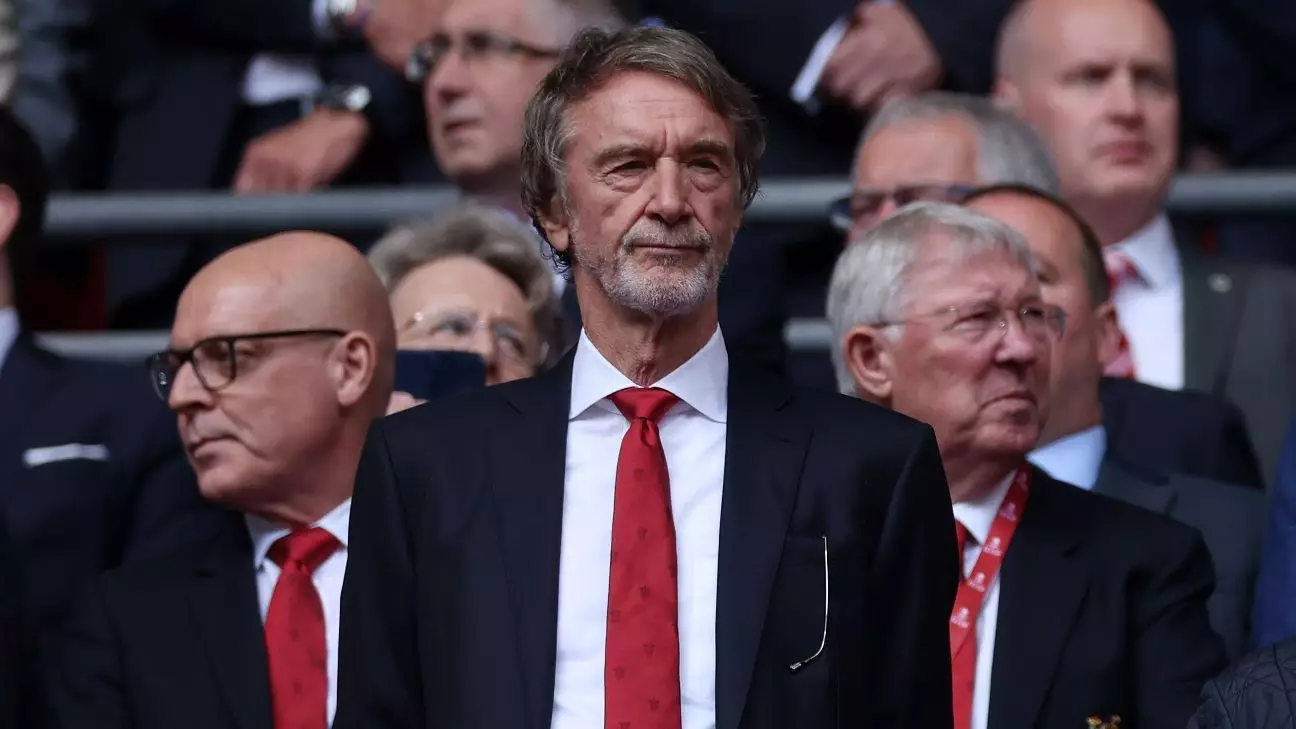When Sir Jim Ratcliffe first made his grand entrance as the new investor in Manchester United, there was an air of anticipation and hope among the staff and fans alike. His bold promise to focus on creating a winning team, rather than solely on commercial success, struck a chord with many who had grown weary of the club’s previous ownership under the Glazers. Ratcliffe’s vision seemed to resonate with the long-standing desire to see United rise again as a genuine contender for top honors in both domestic and European competitions.
However, the initial optimism that surrounded Ratcliffe’s arrival quickly dissipated as his leadership style began to take shape. Staff at the club found themselves on the receiving end of cost-cutting measures and a shift in company culture that left many feeling anxious and uncertain about their future. The decision to end the work-from-home policy and scrap traditional perks such as all-expenses-paid trips to the FA Cup final were met with disappointment and resentment among the employees. The abrupt shift in priorities from investing in the club’s success to tightening the purse strings left many wondering if Ratcliffe’s intentions were truly aligned with his initial promises.
One of the key missteps in Ratcliffe’s tenure at Manchester United was the handling of manager Erik ten Hag following the team’s victory in the Women’s FA Cup final. The lack of recognition and support for ten Hag, coupled with the public display of praise for opposing manager Pep Guardiola, raised questions about Ratcliffe’s commitment to the club’s leadership. The prolonged uncertainty surrounding ten Hag’s position as manager only added to the sense of instability and unrest within the club, further complicating the path to success that Ratcliffe had envisioned.
As the summer transfer season approached, concerns began to mount about United’s sluggish progress in the transfer market compared to other clubs. The delay in appointing a sporting director and the ongoing negotiations with Dan Ashworth from Newcastle United further exacerbated the situation. Despite denials from the club, there was a palpable sense among agents and intermediaries that United were falling behind in their recruitment efforts, casting doubt on Ratcliffe’s ability to deliver on his promise of reviving the team’s fortunes.
Despite the challenges and setbacks faced during Ratcliffe’s early days at Manchester United, there remains a flicker of hope among fans that his investment will ultimately lead to a revival of the club’s fortunes. With Erik ten Hag confirmed as manager and transfer business gaining momentum, there is a sense that the tide may yet turn in favor of Ratcliffe’s vision for the club. If he can navigate the obstacles and setbacks of his initial tenure, there is still a chance that he can restore United to their former glory and silence the critics who doubt his leadership abilities.
The story of Sir Jim Ratcliffe’s impact on Manchester United is one of high expectations tempered by harsh realities. The initial wave of optimism that greeted his arrival has been overshadowed by challenges and missteps that have tested the loyalty of staff and fans alike. As Ratcliffe navigates the rocky terrain of club ownership, only time will tell whether his promises of success will bear fruit or fade into obscurity.

Leave a Reply